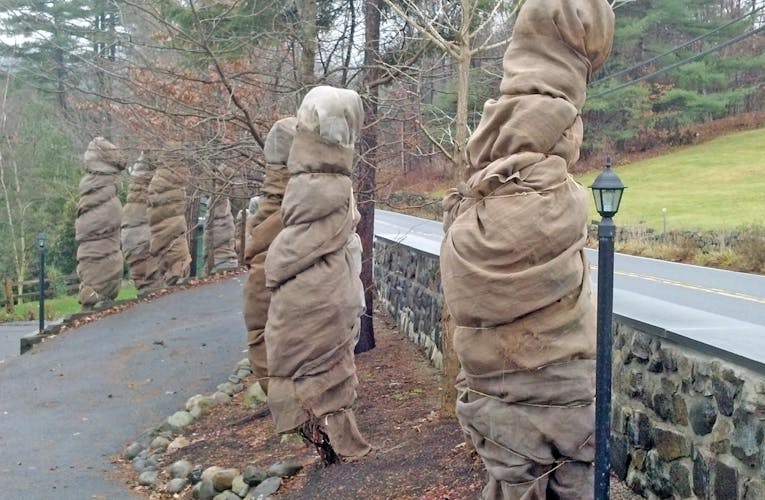Winter can be very stressful on trees and shrubs. Extreme temperatures, strong winds, heavy snow and ice storms can all take a toll. The most common threat to plantings during winter is water loss. As the ground freezes, plants are unable to draw up essential moisture so the leaves begin to sacrifice their stored moisture. Additionally, harsh winds blow across the leaves drawing out more moisture potentially leading to sunscald, windburn or — in extreme cases — plant death.
With proper care and the right tools, you can reduce the impact of these harsh elements. We suggest treating broadleaf evergreens, and susceptible ornamentals with a natural polymer antidesiccant, such as Transfilm. Newly transplanted trees,roses, and young trees will also benefit from this treatment. In extreme situations, like last winter in addition to transfilm treatments, burlapping valuable plantings as well as mounding roses with compost might be necessary.
What is Transfilm?
Transfilm contains compounds that, when applied correctly, slow the loss of water from plants. They work by creating a thin barrier over the leaf stomata (the leaf's pore) locking in moisture. Antidesiccants such as Transfilm are especially beneficial at times when roots are unable to take up sufficient water due to a lack of available ground moisture.
Blog

